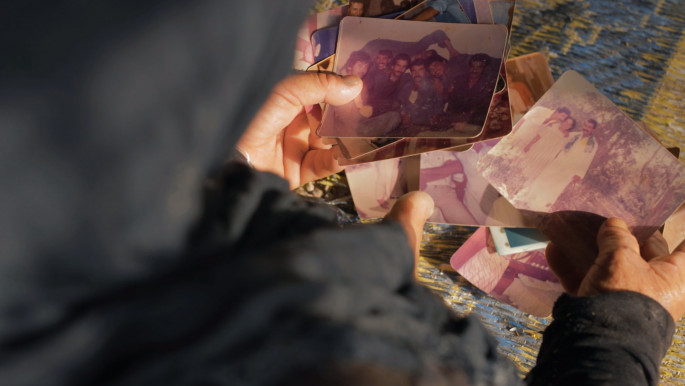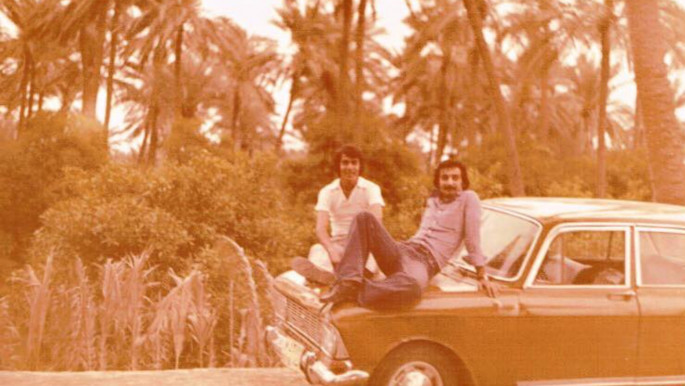How youth activists in Iraq are waging a 'green revolution' to counteract climate change
The youth-led initiative 'Green Iraq' is planting thousands of wildlings and sowing seeds, accelerating a local tree renaissance from Zakho to Basra.
Decades of war have crippled agricultural capacity, and the sector's recovery remains inhibited by poor-governance and environmental stressors exacerbated by climate change.
In mid-September, Baghdad partnered with the United Nations (UN), launching Iraq's National Adaptation Plan (NAP) for building climate resilience and investing in modern infrastructure.
The NAP is undoubtedly an important stride, but green-thumbed volunteers and activists are quietly ahead, waging their own green revolution, and promising to transform sprawling cities and deserts green again.
"Sustainable change requires sustainable funding," Green Iraq (GI) coordinator Taha al-Kubaisy said, lamenting its absence and the lack of political will to address looming risks, from water scarcity to creeping desertification.
 |
Iraqi activists are quietly waging a green revolution to transform sprawling cities and deserts |  |
Kubaisy painted a picture of largely localised "community-funded" schemes, run exclusively by volunteers that met online. "GI consists of 14 teams, each ranging from 12 to 22 members. Their projects are determined by the topography and planting possibilities in their respective locality," Kubaisy explained. Teams are stationed across various governorates; Baghdad, Basra, Mosul, Kirkuk, Diyala, Nasriyah, Wasit, and the Iraqi Marshes, among others.
By transplanting seedlings and reinvigorating residential spaces with shrubs, GI's tree-planting spree hopes to absorb excess carbon dioxide and harmful greenhouse gasses, and act as a buffer against sandstorms whose frequency and tempo has almost doubled in the past fifteen years.
 |
|
| Read more: 'Telling our own stories': Inside Iraq's first independent film festival |
Kubaisy reserved praise for two teams, the "Husseiniya team" in Karbala, and "Al-Adhamiya team" in Baghdad, crediting them for planting the most trees".
These horticulturalist activities are intended to lower heat stress in sprawling cities, revitalise green spaces and restore disused riverfront promenades to their former glory. Tree-planting in Karbala has gained particular traction. The Husseiniya team, Kubaisy said, "are planting anywhere between 100 and 200 trees daily. Overall, they've planted 10,000 trees."
More important than GI's growing tally of planted trees, however, is community outreach, as the organisation's underlying philosophy, teaching people to enact the change they want to see.
Digital platforms have been instrumental in that, allowing GI to challenge environmental apathy, while raising awareness to the way elaborate mall construction, foreign imports, and garbage dumping harm the environment.
Anonymised online platforms, like the one GI runs, empower green activists to report incidents of vandalism and equipment theft when they occur. GI's position of expertise has also emboldened locals to seek help, the most obscure was a request to relocate elderly trees that had outgrown the courtyard where they were planted decades ago.
 |
The youth-led initiative 'Green Iraq' is planting thousands of wildlings and sowing seeds, accelerating a local tree renaissance from Zakho to Basra |  |
Critique is also balanced with educational social media posts, underlining climate change risks in rural farming-dependent areas and the Iraqi wetlands. Other posts are intended to promote horticultural activity and local food production, particularly date farming.
GI's Anbar team launched an ambitious tree-planting campaign at the start of October 2 in the border town of Al-Qaim near the Syrian border, planting 11,000 trees, in a bid to combat desertification.
Twitter Post
|
In an area as prone to desertification as Anbar is, soaring temperatures, groundwater depletion, and prolonged drought (2007 -2009) continue to exacerbate land degradation, faster than the local community's ability to adapt.
The UN currently estimates that as much as 31 percent of Iraq's surface is desert land. Earlier this year, the UN Environmental Programme ranked Iraq the fifth most vulnerable country worldwide, owing to the rapid depletion of water and food stock.
These combined risks have also inspired important collaborations between GI and an Anbar-based Iraqi charity, Wasel Tasel, delivering humanitarian assistance programmes to war-affected families. Their projects are turning deserts green, through eco-sustainable solutions, primarily land-reclamation practices.
Between May and Aug 2020, Wasel Tasel was able to reclaim seven and a half acres of land for agricultural use, the fruits of which will sustain fifteen families whose lives and livelihoods were upended following the Islamic State's conquest of northwestern Iraq.
Wasel Tasel also works closely with local farmers that lost family members to counterinsurgency operations by hosting training workshops dedicated to sustainable farming and harvesting techniques.
Despite falling short of its agricultural potential, local agricultural knowledge, in a country known as the birthplace of some of the world's earliest agricultural practices, remains reputably rich, despite lamentably outdated practices such as drip irrigation, which GI relies on.
 |
Earlier this year, the UN Environmental Programme ranked Iraq the fifth most vulnerable country worldwide |  |
But as Kubaisy assures, gardening, as a pastime, remains highly popular, adding that "GI's planting initiatives have in fact stimulated healthy competition among communities.
"Our endeavour is inherently collective, and requires the participation of every household to succeed" he said. "Our projects have been generally well received," Kubaisy said, sharing stories of when locals have pounced at the opportunity to help; donating tools, volunteering to water trees, and raising funds.
"Still," Kubaisy says, "the uptick in environmental activism has not been without risks". He recounted three separate occasions in which the Baghdad team was harassed by unknown assailants, who, despite lacking official status, ruled that planting in public spaces was illegal. Teams also commonly encounter scornful restaurateurs and shop owners complaining; "you'll be attracting the drunkards in no time".
 |
|
| Read more: Tracing a lost past: National memory in the forgotten photo archives of Iraq |
Conversely, GI's vision has been understood by some municipalities, whose officials have granted planting permission willingly, and contributed additional public sector workers to support large-scale planting projects. In some instances, Iraqi Security Forces have also assisted with tree-planting schemes, Kubaisy said, careful to point out that GI receives no government support.
Other municipalities are more suspicious, Kubaisy noted, "and have tried to deter us by declaring it illegal to plant in certain public spaces".
"Political parties have also been in contact, promising media coverage and funds in exchange of tree-planting operations undertaken in their party's name. We of course refused," Kubaisy said.
Lack of official support and recognition has done little to blunt this generation's fervour and commitment to change. Tree planting campaigns offer no lasting panacea to Iraq's long litany of environmental woes, particularly mercilessly hot summers.
But initiatives like these have done more than any of Iraq's post-2003 administrations to restore a sense of pride to Iraqi communities, empowering Iraq's youth to reclaim urban spaces that armed conflict, neoliberal policies and plain negligence have decimated.
Nazli Tarzi is a freelance British-Iraqi journalist specialising in Middle East politics, with a particular interest in Iraqi affairs.
Follow her on Twitter: @NazliTarzi





 Follow the Middle East's top stories in English at The New Arab on Google News
Follow the Middle East's top stories in English at The New Arab on Google News


